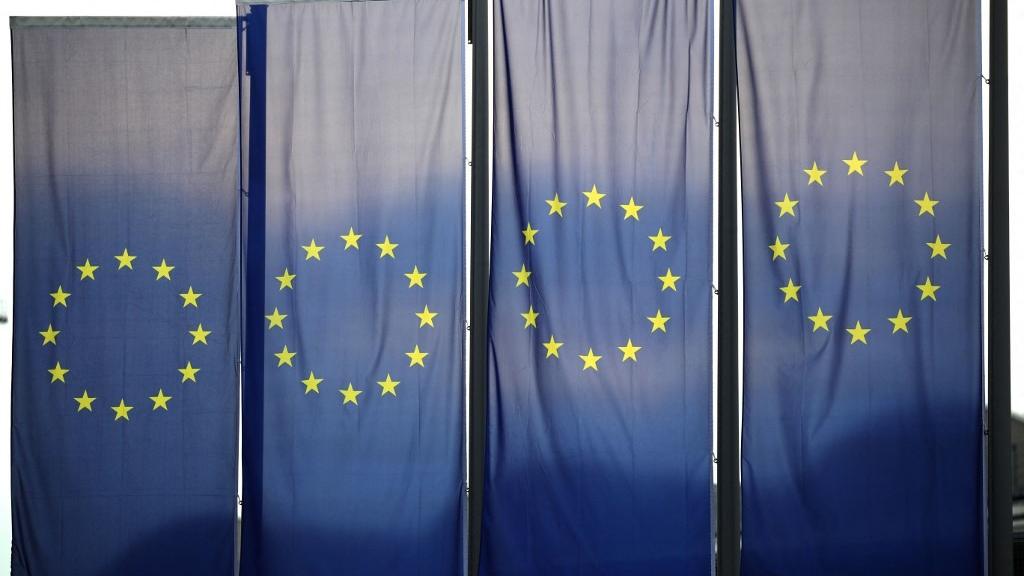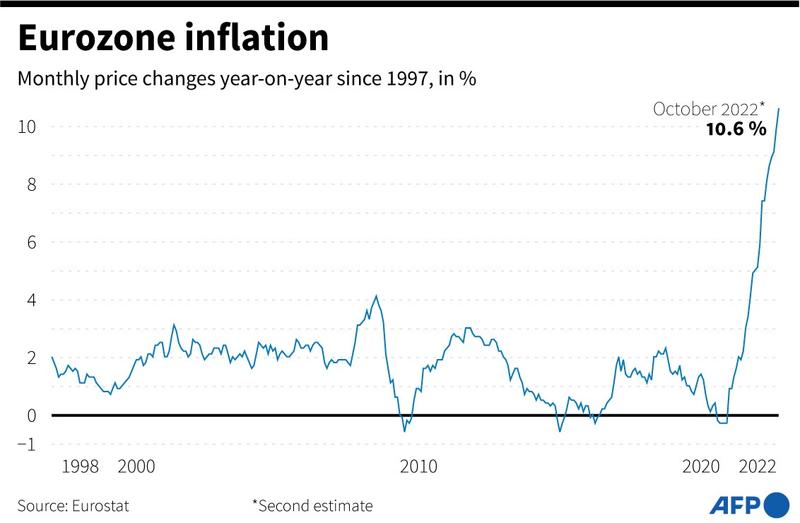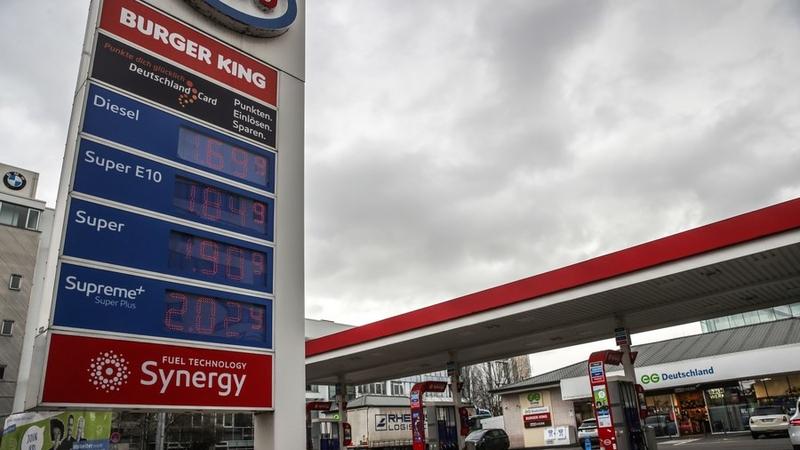 Flags of the European Union flutter in front of the headquarters of the European Central Bank (ECB) in Frankfurt am Main, Germany, on March 10, 2021. (ARMANDO BABANI / AFP)
Flags of the European Union flutter in front of the headquarters of the European Central Bank (ECB) in Frankfurt am Main, Germany, on March 10, 2021. (ARMANDO BABANI / AFP)
The downturn in euro zone business activity eased slightly in November but overall demand continued to decline as consumers cut spending amid a cost of living crisis, a survey showed on Wednesday.
There has been mounting evidence the bloc is entering a recession and in a Tuesday Reuters poll economists gave a 78 percent chance of one within a year, with GDP expected to fall 0.4 percent this quarter and next.
There has been mounting evidence the bloc is entering a recession and in a Tuesday Reuters poll economists gave a 78 percent chance of one within a year, with GDP expected to fall 0.4 percent this quarter and next
S&P Global's flash Composite Purchasing Managers' Index (PMI), seen as a good gauge of overall economic health, nudged up to 47.8 from 47.3 in October, confounding expectations for a fall to 47.0 in a Reuters poll.
However, November is the fifth month the index has been below the 50 mark separating growth from contraction.
ALSO READ: European Commission cuts EU, eurozone growth forecasts
"A further fall in business activity in November adds to the chances of the euro zone economy slipping into recession," said Chris Williamson, chief business economist at S&P Global Market Intelligence.
"However, the November PMI data also bring some tentative good news. In particular, the overall rate of decline has eased compared to October."
 This AFP graphic dated Nov 17, 2022 shows the chart of changes in the Eurozone inflation rate since 1997.
This AFP graphic dated Nov 17, 2022 shows the chart of changes in the Eurozone inflation rate since 1997.
A further fall in business activity in November adds to the chances of the euro zone economy slipping into recession ... However, the November PMI data also bring some tentative good news. In particular, the overall rate of decline has eased compared to October.
Chris Williamson, chief business economist at S&P Global Market Intelligence
Activity in the bloc's dominant services industry declined again, with the headline index matching October's 20-month low of 48.6. The Reuters poll had predicted a fall to 48.0.
Despite the ongoing slowdown firms did increase headcount, albeit at the weakest pace since March 2021. The services employment index fell to 51.7 from 52.5.
Manufacturing activity, particularly hard hit by soaring energy prices and disrupted supply chains, also declined but at a slower pace. The main index rose to 47.3 from 46.4, above the Reuters poll estimate for 46.0.
ALSO READ: EU: Ukraine crisis to slash eurozone growth, boost inflation
An index measuring output, which feeds into the composite PMI, jumped to 45.7 from 43.8, however some of that came from completing backlogs of work.
New orders fell sharply again and although there was a marked drop in price pressures they remained high. The output prices index fell to 63.7 from 66.1, its lowest reading since March 2021.
 Photo taken on Feb 25, 2022 shows diesel and gasoline prices displayed on a screen at a gas station in Frankfurt, Germany. (ARMANDO BABANI / XINHUA)
Photo taken on Feb 25, 2022 shows diesel and gasoline prices displayed on a screen at a gas station in Frankfurt, Germany. (ARMANDO BABANI / XINHUA)
New orders fell sharply again and although there was a marked drop in price pressures they remained high. The output prices index fell to 63.7 from 66.1, its lowest reading since March 2021
"Price pressures, the recent surge of which has prompted further policy tightening from the ECB, are also now showing signs of cooling, most noticeably in the manufacturing sector," Williamson said.
"Not only should this help contain the cost of living crisis to some extent, but the brighter inflation outlook should take some pressure off the need for further aggressive policy tightening."
READ MORE: Euro plunges to two-decade low as economic fears mount
Inflation in the region reached 10.6 percent last month, more than five times the ECB's 2 percent target, and the central bank is expected to add another 50 basis points to its deposit rate next month so any sign of an easing in price pressures will be welcomed by policymakers.


